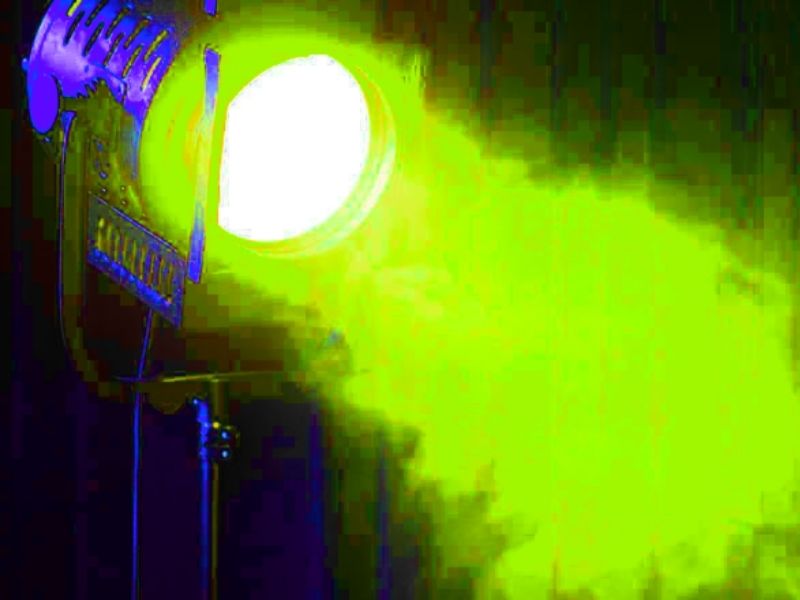The departure of Ethan McSweeny from the American Shakespeare Center was only one among many over the past year. Taken as a whole, the protests and departures/firings raise issues that all of us must grapple with, on both sides of the footlights. The culture of entitlement, the idea that directors are a breed apart, and the notion that their temperament comes with the territory, must be rejected in favor of a new vision of professionalism and mutual respect.
Our growing pains may as well be public, because there are secrets the theater community has kept to itself for far too long. Our dirty laundry desperately needs to be aired; we have reached the point where the only way to stop the abuse is to go public with it. Name it, follow it to its roots; and start to restructure the theater from start to finish, so that all those who aspire to positions of authority in the theater, present and future, are put on notice.
I don’t mean just artistic directors; their arrogance is frankly to be expected, given the way we have cultivated and enabled it for so long. If you don’t want directors who act like jerks (or worse), you need to put them on notice years before they even set foot in the professional rehearsal room.
To my mind, the road to abuse begins at the very beginning, in the actor studio. Many of you, I hope, had a positive experience as you learned your craft. But far too many of us did not; I’m talking about those who know what it’s like to come into class, having worked long and hard on a monologue or a character study, only to be met by a booming voice across the room, accusing us of laziness, stupidity—you name it.
I’ll never forget a scene from the PBS documentary on Stella Adler, showing Adler in high dudgeon, demanding that a young man apologize to his classmates. Apologize for what? PBS didn’t bother to share that with us; perhaps because, as far as PBS was concerned, everyone knows that this is how young actors must be treated. The documentary had the virtue, at least, of showing the theater community its own image. PBS got it right: when it comes to aspiring actors, abuse is not only expected; it’s practically required.
It’s as if we had all internalized the gruesome Russian proverb “If you loved me, you’d beat me.”
The fact that many of us regard the theater as a refuge from the brutality we find elsewhere—at home, at school, on the streets—doesn’t register at all. Just because we want to become better actors, generations of acting coaches have felt entitled to treat us like illiterate serfs.
These abusive theatrical gurus claim that they’re not trying to mess with our heads, just our technique; but they know perfectly well that the actor’s instrument, especially as we are trained here in America, is intensely psychological in its composition. You can’t mess with a young American actor’s technique without having a direct effect on their psychological health and well-being. I’ve sat in acting classes and watched helplessly as brilliant, talented human beings implored their teachers, wordlessly and in tears, for some sign of respect, some recognition that they’re working hard and making progress.
We don’t need a ticker-tape parade; we need to know what to work on. We need the guidance, we need the discipline, and we need to recognize there’s hard work ahead as we develop our talent. But we don’t need it delivered through psychological abuse, through sucker-punches. Sucker-punches don’t improve our technique, or our lives for that matter; if anything, they acclimate us to a lifelong subservience to abusive people, both on and off the stage. And a lifelong failure to take pride in the work that we do. (Just ask Marilyn Monroe.)
So as ugly as they can be, in some respects we can’t blame artistic directors for their arrogance, because they went into the profession assuming that this was precisely how they were supposed to behave. The tradition has taught them that screaming and abusive behavior was OK, because it got results.
And where did they get the idea, that psychological abuse was OK? That screaming fits, constant threats of firing, etc., were justified? They got it in the actor’s studio, where they watched as classmates were browbeaten and humiliated. They got it as spear-carriers in productions where the directors they interned with screamed and flipped chairs, while everyone sat in stunned silence.
Directors are the ones who determined, from very early on, that in a system where abuse was regarded as normal, they’d rather be the abusers than the abused. Who can blame them?
One more essay, and I’m done. For now.
SEE ALSO:


by Andrew Walker White






I have experienced this but I have also experienced great collaboration and kindness. One of Marilyn Monroe’s teachers was one of mine:Phoebe Brand from The Group Theatre. Phoebe wouldn’t let you get away with not doing your best, but she was encouraging, compassionate, passionate and collaborative.
I wish that this article mentioned Technicians as well. Especially Stage Managers can be abused not only in rehearsal spaces but designer meetings and beyond. I remember specifically when I was not only Stage Managing, but also set designer/ carpenter/ light designer/ board operator I was screamed at by my Artistic Director because I was frustrated that he changed a set piece the day of previews and destroyed what I had made. No notes were ever made about the piece and when I asked why my “(his piece) is a hell of a lot better than the crap that was there.”
Of course thats not the only instance but I nearly quit that night which would have killed my career. Now I don’t work in the industry at all but I want people to know its not just Actors.
I studied acting at Montgomery College, Catholic U, and the Shakespeare Theatre (under Fran Dorn), and I NEVER saw directors have screaming fits. Where is this training taking place? I wonder — since you used the term ‘gurus’ and reference Stella Adler — if you are referring to sketchy training situations?
Back in the ’80’s, I told my father about the temper tantrums thrown by a highly respected director associated with classical theatre. I really admired this director, who had a New York background and taught at an important conservatory. Dad was a pit musician/musical director on local musicals, and a rehearsal pianist on several Broadway shows. He told me something I didn’t know: This director had once directed a Broadway musical. Because of his behavior he was blacklisted and will never direct on Broadway again.
It seems that non-profit theatre is catching up, and blacklisting directors who indulge in unprofessional behavior. Dad had a bad experience at Circle in the Square in the late ’60’s, and had a certain disdain for non-commercial theatre. I never wanted to be a Broadway musical performer, but I wish the professional behavior I’d seen on my dad’s shows could be combined with the cool script choices made by non-profit theatres.